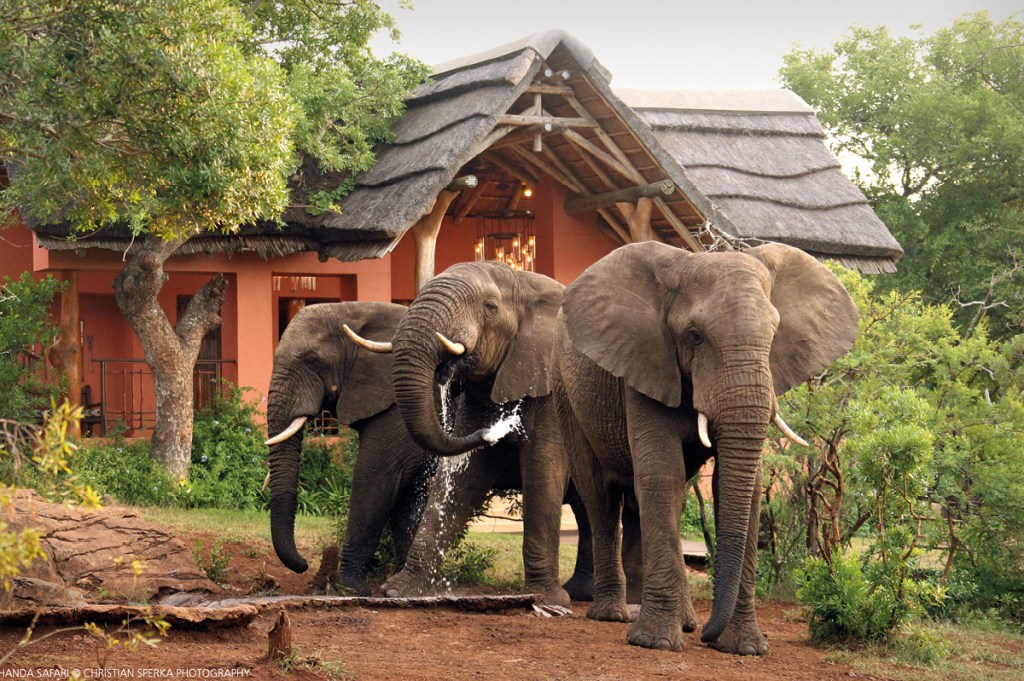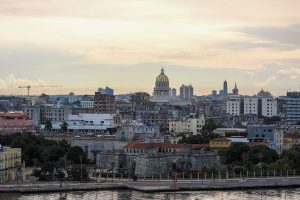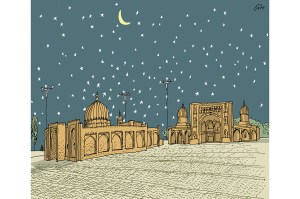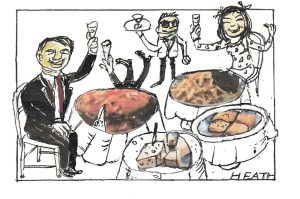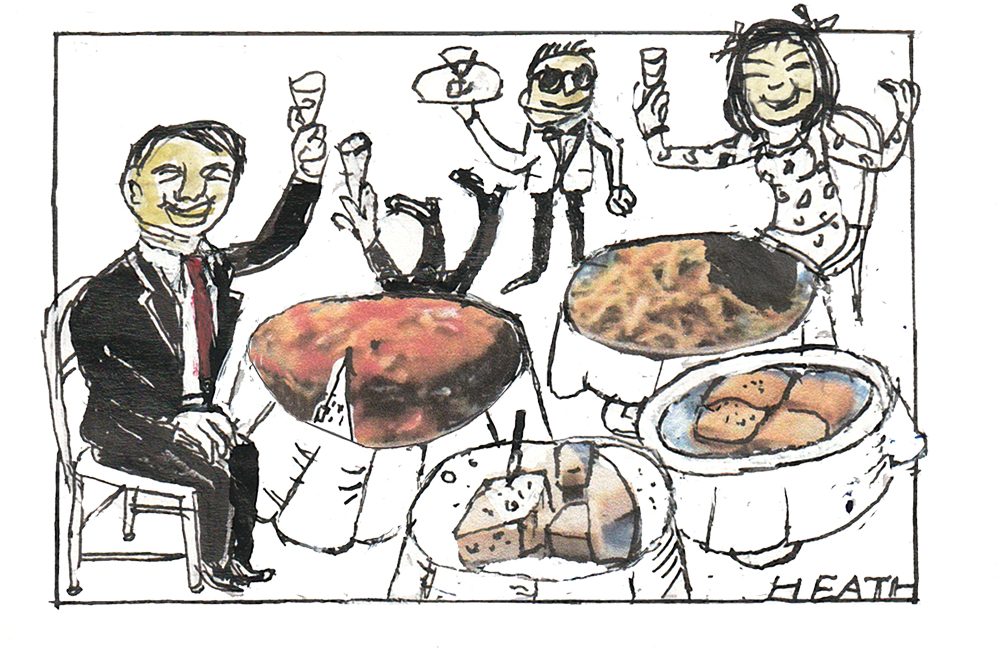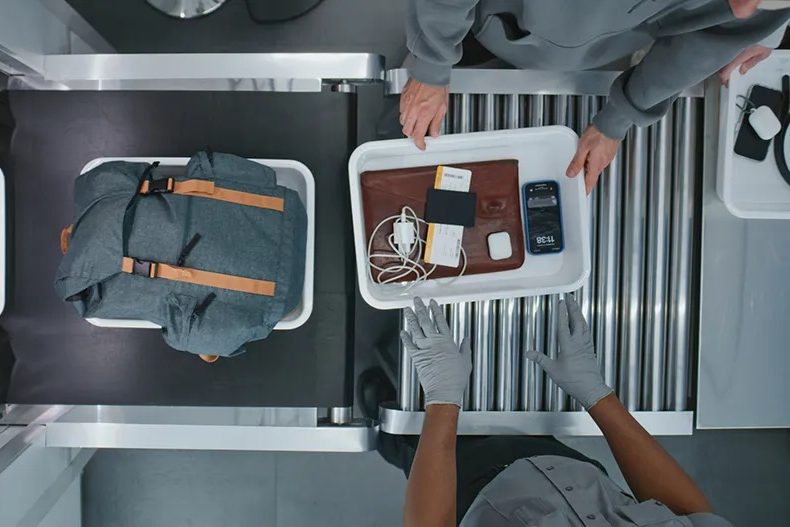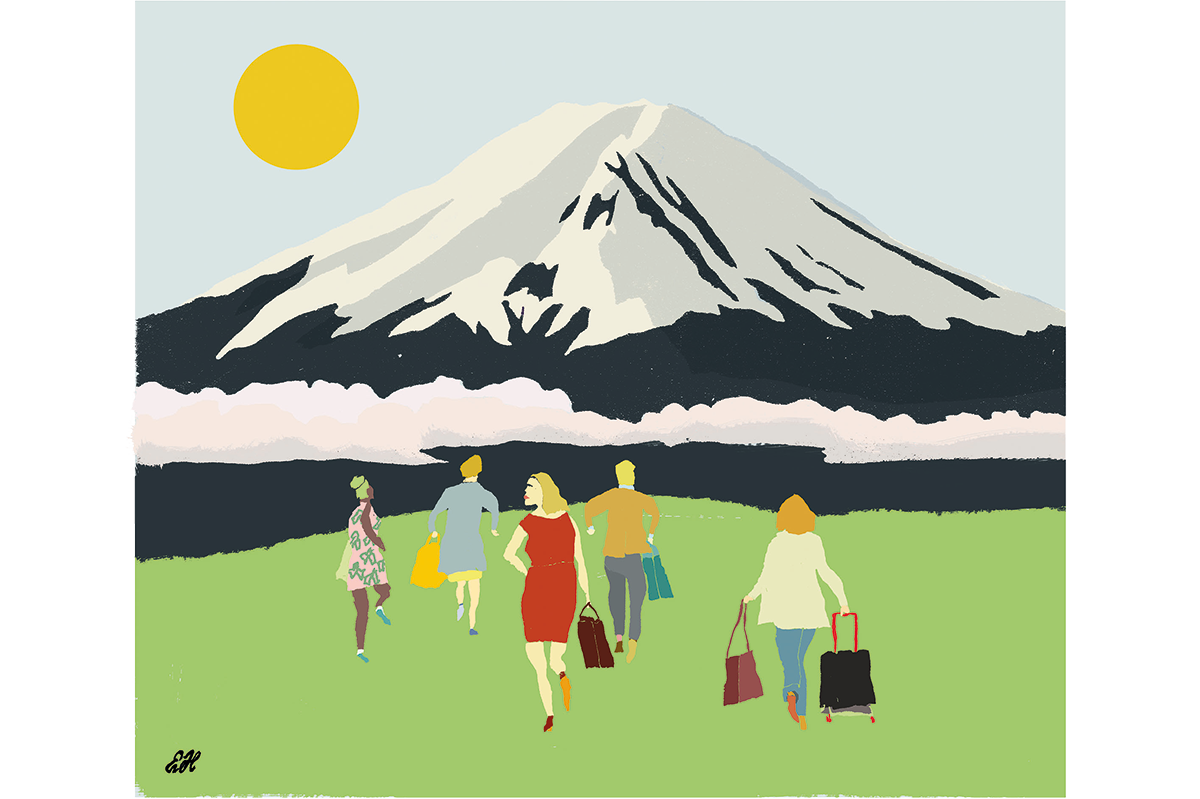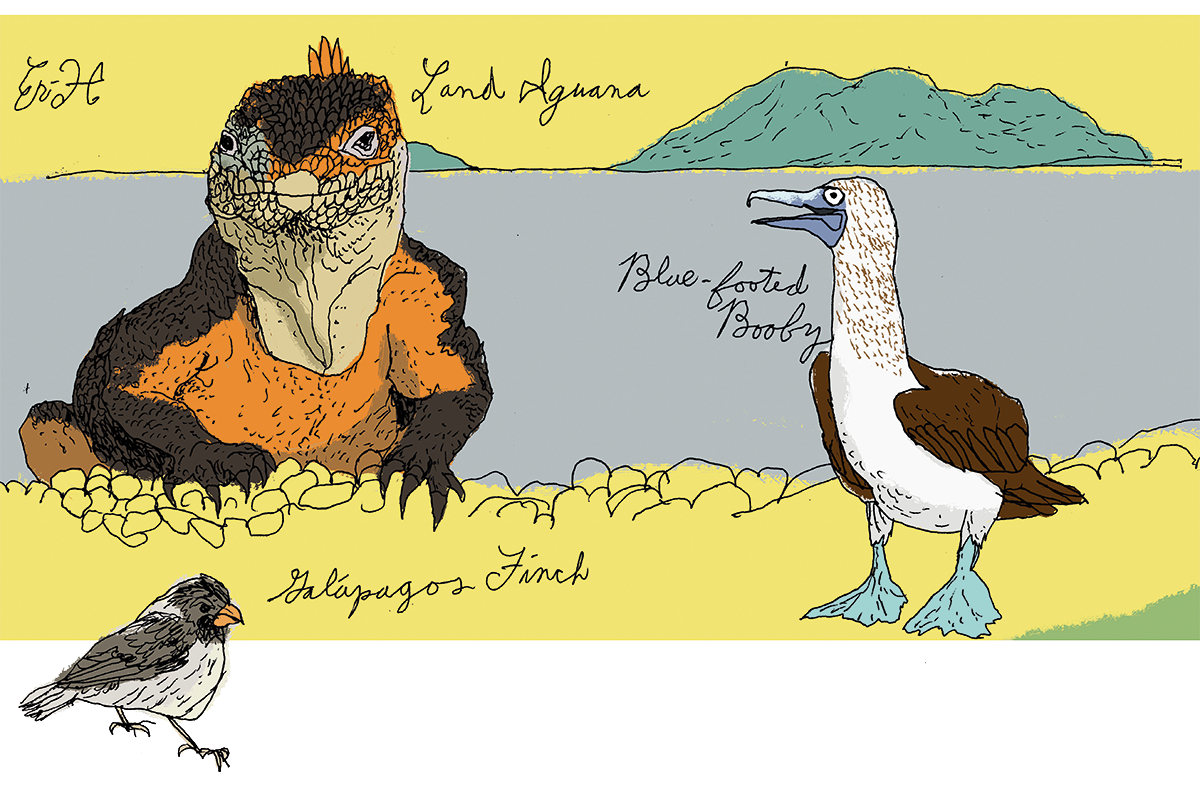I’d heard that KwaZulu-Natal province in South Africa delivers life-changing memories. Roaming Shaka Zulu’s hunting ground. The Big Five. Bushveld soil on your shoes. Falling asleep to the music of the night, curtains open in anticipation of a burning sunrise. I flew there for a thrilling, once-in-a-lifetime safari experience. And I got it. While sitting on the toilet.
It’s a unique frustration, hearing the phone ring out, from the bathroom. My first morning at Thanda Safari transports me back to my teenage years in the 2000s; the last time I had a house phone. “I’m coming!” I shout to no one in particular, having quickly dashed to my digs, post-crack of dawn game drive.
“Miss Everett! Oh, thank goodness! You ARE there! You must not leave your room!” gasps staff member Skhonzile.
“Everything OK?”
“It’s an elephant. He’s outside your door. Drinking the water.”
I drop the phone, dashing to the window. Decking wraps around my beautiful Zulu-style thatched lodge, with a dipping pool overlooking the plains. Nothing there. Gutted, yet relieved, I phone them back. At 5 a.m., my expert guide for the week wildlife photographer Christian Sperka had shared: “Elephants and humans are the only creatures who destroy an environment to the point where they destroy themselves.” This is at the top of my mind as I’m duly collected and walked to breakfast, past dozens of elegant kudu. “Don’t worry,” he says, coolly. “We’ve found him.”
We proceed in silence up stone steps, to a scene nothing short of magnificent. Six. Seven. Eight. Nine. Oh, two little babies! That makes it… eleven? Twelve? Too many elephants to count. Trunks deep in the watering hole in the middle of the camp. Tears of joy soak my face, and the faces of other guests lucky enough to catch this. An hour ago we had eyes on three of Africa’s famous Big Five: white rhinoceros, African bush elephants and buffalo. We felt fortunate. Now we can hardly believe it.
A beautiful breakfast is taken in stunned near-silence, before my inbox diverts me to reality. But already, “reality” is inverting — the gray world of offices, strip lighting and desks seems uncanny in this technicolor bubble, teeming with creatures. I shake it off and power through fifty emails, bothered by no one, before snoozing through a spoiling massage in the spa. As they say here, lekker.
When the animals shelter from the heat of the midday sun, we relax. When they start to prowl come nightfall, we venture out. I love this new rhythm, marching to the beat of the wild. Will I become one of those smug business magnates who swear by getting up at 4 a.m.? Not in a million years, but I’ll pretend I’m one for the next four days. On her holidays, you understand.
I’d picked Thanda Safari’s 14,000-hectares of private reserve because it’s consistently been named South Africa’s, Africa’s and the World’s “Leading Luxury Lodge and Exclusive Private Villa.” But their community and conservation efforts stand out. Around 90 percent of their staff come from three local Zulu groups; not insignificant given unemployment sits at around 50 percent post-Covid. Walkways are built around an old marula tree; I’m told that great care was taken when choosing the site, so as not to disrupt its surroundings.
Management of landscape rehabilitation, alien-vegetation clearing, fencing, water monitoring and even translocating and introducing animals to ensure genetic diversity informs day-to-day life here. Thanda Safari is a founding member of Project Rhino, involved in the WWF Black Rhino Expansion Project, working tirelessly to grow the numbers of the elusive animal which is endangered only by human activity. By the end of the trip, these territorial beasts and the famously elusive leopard are the only big names to evade us.
Ongoing research projects keep the onsite conservation center buzzing. I spend time meeting the team, plucky young volunteers and contracted experts who form a cheery, adventitious family. My mind spins — could I come back and do this? “You could write in the late mornings,” resident ecologist Lorraine Doyle suggests. Public transport, skyscrapers, crowds . . . it all seems so far away. Everyone I chat to bristles at the idea of going back to a city.
We spend the rest of the day singing the alphabet and dancing with fifty children from the local Inkanyiso daycare, powered only by charity donations. Many come from Thanda Safari visitors, who are helping pay for playground equipment, school uniforms, books and school infrastructure. Kids here are taught in Zulu and English to help them get the best start. Most of their neighbors are not so lucky.
Everyday tasks here are exhilarating; finding giraffe skulls on the plain and cleaning them up to display, or figuring out ingenious solutions for collecting fresh water. Again and again, I’m reminded how sheltered and suburban my life has been. As a kid, The Lion King was my only cultural touchpoint for this continent. “We have a saying here: ‘This is Zululand, not Disneyland,’” Christian Sperka warns. He’s only half-joking.
Christian delivers my own personal version of Disneyland late one evening. He pulls up in a quiet spot. “No lions here,” assures tracker Bheki from his seat perched on the hood, hopping off to hand me a discarded porcupine quill. We nod, knowing he could keep us safe in his sleep. Tentatively leaving the safety of the “Green Mamba,” Christian’s prized Land Rover Defender, we jump out into the bush.
The custom-built game viewing vehicle boasts room for his long-focus lenses, binoculars, iPad, and… is that a Nespresso machine? Christian proceeds to unpack and assemble a fully-fledged cocktail bar and snacks. “Thanda Martini?” I opt for a coffee, to which he insists on adding a (generous) slug of the local Amarula cordial. I love this man.
Christian points out the yellow bones of fever trees that shine from afar, telling how their bark is used to treat eye infections and illnesses. Quinine is extracted from the bark and used to treat malaria. Young men drink it and purge, or wash with it, to get lucky. Dramatic views of the savannah and Lebombo mountains grow dark, bush noises grow louder and the stars start to blaze. Time to head back.
Approaching the lodge, we tailgate another game driver heading home. She stops, quite suddenly. Then, a deafening trumpet. Christian kicks into gear and we speed backwards, with a jaw-droppingly cinematic view of a bull elephant, heading straight for us. A small herd veers onto the path to follow him. “He’s musthing,” Christian grunts, steering wheel spinning to get away from the rutting bull. We’re equal parts thrilled and shaky as we’re whizzed away, finding a safe place to sit and let the elephants pass. The heavens open, huge raindrops soaking us before we can throw raincoats on, to the tune of the elephant’s symphony.
Christian finds me at the bar before dinner, South African wine in hand. “Oh, were you worried?” he says, a picture of calm and experience. “He was just passing through. Remember, we’re in their home, not the other way around.” I nod, ordering another glass. A predictably sumptuous dinner is eaten beside a crackling fire, under an uninterrupted sky. We trace Orion’s Belt and the Western Zodiac via a clever phone app, and it’s spellbinding.
Next morning, 5 a.m. Overcast, but no rain. Perfect conditions to find lions. “It’s pumping,” says Christian. Fortified by last night’s instant deep sleep, I’m raring to see more. Within minutes, we find a male lion sprawled across the dirt road. “What’s that smell?” Christian wonders. “Kill,” Bheki points. We inch past the lion, to my (and my vegetarian comrade’s) horror. Toward the stench, past the carcass. Frozen in rigor mortis, the poor beast has seen better days. “At least the stomach is still intact. Then you’d know about it,” Christian observes. We sit (downwind) for an hour, watching the king of the jungle digest. We hope he’s too full to consider us next. The objective knowledge that you’re safe in the vehicle does nothing to block human instinct.
Next, we spy an aardvark hole, then track a cheetah, who’s eyeing up a herd of impala. “The cheetah has seen the impala. The impala have not seen the cheetah,” Bheki nods. We spot giraffes. Zebras. Birds, glossy and scruffy, tiny and huge. Another unforgettable day, in pristine nature. It’s saddening to hear that South African conservation efforts have struggled post-Covid, the ripple effects on the tourism industry still affecting political and social support, plus funding. No one knows what the full repercussions will be, but there’s no time to wait and find out. Thanks to climate change, urbanization and poaching, dozens of species from African penguins to pangolins, blue cranes to Riverine rabbits are critically endangered.
Each night, a scroll with a Zulu proverb is propped on my pillow. “The nice fig is always full of worms” becomes my favorite. As tourists in this visually stunning but troubled country, we have a duty to look beyond the brochures and glossy videos, supporting projects doing good where they can.
Where to start? If you’re planning a visit, ask questions. Chat to locals. Research your hotel’s charity support, volunteering and employment initiatives. Ethical safaris and private reserves work with communities to help wild animals stay wild. Contributing to those efforts is a once-in-a-lifetime experience on its own. The proverb on my pillow the last night provides some guidance: “The way forward is to ask from those who have been before.”
This article was originally published in The Spectator’s May 2023 World edition.



